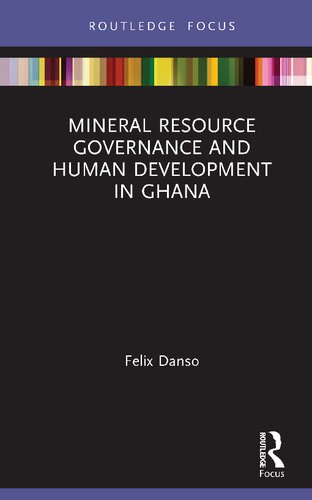

Most ebook files are in PDF format, so you can easily read them using various software such as Foxit Reader or directly on the Google Chrome browser.
Some ebook files are released by publishers in other formats such as .awz, .mobi, .epub, .fb2, etc. You may need to install specific software to read these formats on mobile/PC, such as Calibre.
Please read the tutorial at this link: https://ebookbell.com/faq
We offer FREE conversion to the popular formats you request; however, this may take some time. Therefore, right after payment, please email us, and we will try to provide the service as quickly as possible.
For some exceptional file formats or broken links (if any), please refrain from opening any disputes. Instead, email us first, and we will try to assist within a maximum of 6 hours.
EbookBell Team

4.8
74 reviewsThis book investigates how mineral resources can be governed to promote people-centred development in Ghana, focusing on the three main human development variables: living standards, education and health.
Ghana is endowed with abundant mineral resources. The mineral sector accounts for about 14% of total tax revenue, driven mostly by an increase in export earnings from the gold sector and the commencement of crude oil exports. However, the country has not yet been able to use its natural resources to promote human development, and the majority of the population still lives on less than $2 a day. This book argues for a paradigm shift in the discussion of mineral resources, one that looks to govern natural resources in such a way as to improve standards of living, health, education, income levels, empowerment, quality of work and threats from violence. The human-centred mineral resource governance approach developed by this book will not only be useful to Ghana, but can also be applied to other mineral-rich countries in sub-Saharan Africa.
This book will be important to upper-level students and researchers of natural resource management, international development and African studies, as well as to NGOs, practitioners and policymakers who recognise the importance of linking natural resources income to human development.